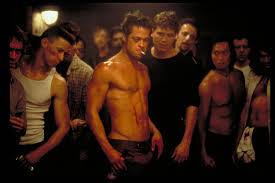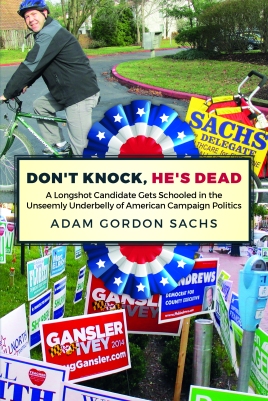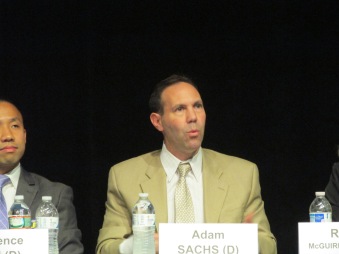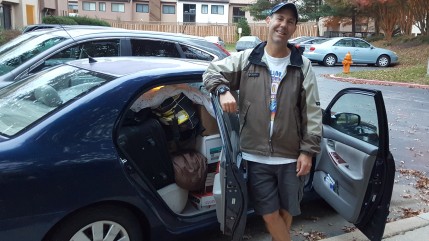Midlife and Crisis: An Uneasy Relationship
This essay is the introduction to my new book, All That’s Gone and Still Remains: Reflections of a Man at Midlife, based on the Midlife Dude blog.
Midlife gets a bad rap. What else can be concluded when “midlife” is practically married to “crisis?” Two peas in a pod they are, “midlife” and “crisis.” But are they really well matched?
Canadian psychologist Elliott Jaques coined the term “midlife crisis” in 1965, concluding in a study that creative geniuses underwent changes of style or declines in productivity in their mid-to-late-30s. The term gained traction in popular culture by the 1970s, describing the time of life roughly between ages 40 and 65 when adults become attuned to their own mortality, concerned with leaving a mark before dying, and reflective about whether their first half of life has been meaningful.
But the term has snowballed from its origins documenting the imaginative processes of artists and poets in an obscure, dry journal of psychoanalysis to represent everything cataclysmic that seemingly afflicts the middle-aged trying desperately to ignore failed dreams and roll back the merciless tide of aging in a culture fixated on youth. Author Gail Sheehy cemented the gloomy view of midlife in her landmark 1976 bestselling book, Passages: Predictable Crises of Adult Life, referring to decades of life as the “Forlorn Forties” and “Resigned Fifties.”
Time to Ditch Wife for Bombshell?
“Midlife crisis” is more typically applied to males, at least when couched in a derogatory manner signifying an unofficial malady. “Midlife crisis” has come to denote the man who ditches his long-devoted, slightly wrinkling and graying wife for the platinum blonde bombshell 20 years his junior in his office; trades in his practical suburban family vehicle for the candy-apple red Porsche roadster; and transforms from dull and predictable to flamboyant and impulsive, fueled by a surge of drugging and boozing in a pathetic effort to recapture the carefree, raucous days of yore.
For women, the term “midlife crisis” generally carries an undertone that is more forgiving and socially validating, one tilted more toward liberation than debauchery. Sure, some midlife women succumb to vain attempts to recapture youth through medical and cosmetic procedures, or irresponsibly abandon a family to engage in self-indulgent, feel-good, self-destructive behaviors. The 40s decade certainly seems a marker of heightened vulnerability and confusion, as the beauty of youth wanes, marriages grow stale and risk of divorce increase, and children become more independent and leave, diminishing what many women regard as a primary raison d’etre.
Yet, midlife is characterized more as a time of renewal, rebirth and exploration for women. It is seen as an opportunity to shed an old self that may have been contorted to meet societal, cultural and parental expectations and transform into a more authentic, independent, self-accepting, self-confident being, and to reclaim aspects of personality and passions lost along the way. Midlife is viewed as a period of re-evaluation and adjustment, of increased wisdom, strengths, experience and vitality, when old dreams that no longer inspire are abandoned and more genuine desires and talents take hold, a process known as self-actualization, or becoming more fully oneself. Rather than a “crisis” producing angst, depression and dissatisfaction, psychotherapist and author Stephanie Marston declared that the women she chronicled in her book, If Not Now, When? Reclaiming Ourselves at Midlife, characterized midlife as “one of the best times of their lives.”
What’s the Crisis?
Social science researchers have varied widely on whether any identifiable phenomenon that could be labeled as “midlife crisis” exists; numerous studies have shown midlife is not characterized by pervasive crises. Certainly, there are no commonly defined symptoms and nothing resembling a midlife disorder appears in the Bible of mental health, the Diagnostic and Statistical Manual of Mental Disorders.
Count renowned psychologist Daniel Levinson, author of the 1978 seminal book, Seasons of a Man’s Life, among the true believers. Following a group of working men for 10 years, Levinson developed a theory that delineated adulthood as a series of stages and transitions, each with a developmental task or crisis to resolve to advance to the next with a sense of well-being. Unlike some other researchers who rejected the concept of a “midlife crisis,” Levinson determined that 80 percent of the men he interviewed found the midlife transition a tumultuous struggle and psychologically painful. He bluntly described the existential predicament men face at midlife in Seasons: “Adults hope that life begins at 40 – but the great anxiety is that it ends there…It is terrifying to go through middle age in the shadow of death…and it is a self-defeating illusion to live it in the shadow of youth…”
I believe the stereotypical male version of a “midlife crisis” is overblown, hyperbole, a caricature. In reality, I contend a man’s “midlife crisis” more closely resembles the woman’s experience of re-evaluation, greater self-knowledge and wisdom – at least among those adults who aren’t withering in place – than the stereotypical jerk wearing shiny new bling glinting through an open shirt, cruising in an eye-popping Corvette convertible, ditzy blonde under his arm, toupee blowing in the wind.
Midlife Challenges
Midlife requires leaps of faith, acceptance and tolerance of uncertainty. We encounter the realization that our careers may have hit a ceiling, and re-evaluate whether the work at which we might have labored for decades provides meaning or nourishes our soul anymore, or ever did. We pause to question whether the race for success, advancement and achievement, as defined in young adulthood, is worth chasing anymore. If we haven’t already experienced job loss through no fault of our own, we are prime targets for downsizing and early retirement packages because of our age and salaries. We have to run ever faster to avoid becoming obsolete in the face of rapid societal and technological changes, the province of the young.
We grapple with the financial pressures of mortgages, college tuitions, accumulated debt, material acquisitions, increasing health care costs and looming retirement. We question whether our marriages are satisfying or have gone flat, whether the grass may be greener. We groom our children and ultimately set them free – except those suffering from Failure to Launch Syndrome — experiencing some sense of loss entering the childless phase. We may be sandwiched, caring for ailing parents while parenting our own kids. Mounting midlife challenges can be associated with high levels of stress, anxiety and sadness, which can lead to unhealthy lifestyles, deterioration of physical and mental health and acceleration of aging.
Through it all, we face choices, the biggest of which is whether we will transition at this crossroad toward reimagining and reinvigorating a life with new possibilities, purpose and contributions through continued growth and development, or whether we will hunker down, circle the wagons, kick like a mule, pull the covers tight, switch on autopilot and hang on mightily to the status quo, resigned to becoming a member of the walking dead until the nursing home comes calling.
Giving Back vs. Giving Up
Psychologist Erik Erickson captured this dichotomous phase of life in his preeminent Stages of Psychosocial Development theory, identifying midlife as the period of Generativity vs. Stagnation. Adults entering their second half of life would either help guide the next generation through socially valuable work, creativity, productivity and loving relationships, or would stagnate in a pool of self-centeredness and ineffectiveness. Those who do not associate change with growth but rather with loss, being passed by or failing are destined to weigh on Erickson’s Stagnation side of the scale.
I have dealt with many of midlife’s rites of passage. I have lost jobs multiple times; changed careers, requiring a return to school and sacrificing years of experience and money to start over in an occupation that stirred my soul; moved to experience a new environment and culture; divorced and remarried; faced the challenges of parenting teen-aged kids and watched them leave home for independent lives; cared for an ailing mother, and lost her; observed a colleague succumb to the ravages of alcohol and depression; experienced a major health setback and long rehabilitation; and strived for self-fulfilling goals involving creative expression. I believe I’m heading down Erickson’s path of Generativity; if I wasn’t, I imagine my life would be crushingly bland and I would be miserable.
These essays, compiled upon my entry into and over the course of a clinical mental health counseling graduate program from my late 40s to mid-50s, provide commentary from a personal perspective on these and other midlife issues, and seek to relate my experiences broadly to others going through similar midlife transitional phases and events. These writings reflect the opportunities and challenges, risks and rewards, hopes and fears, and triumphs and setbacks I’ve experienced and observed in midlife.
In tone, the essays are inspirational, triumphant, motivational, hopeful, wistful, prideful, contemplative, inquisitive, wondrous, melancholic, depressing, upsetting, mournful, resigned, disappointed, critical, self-questioning – in short, the kaleidoscope that the midlife passage presents to our minds, hearts and souls.

 from my life – figuratively and literally – so that all I have left and all that I focus my attention and physical, mental and emotional energy upon are things that add value and meaning to my life. The Minimalists love the book/movie Fight Club, about an underground, subversive group of men breaking free from the soul-numbing shackles imposed by societal, cultural and corporate expectations, citing this quote from Fight Club’s charismatic leader Tyler Durden: “The things you own end up owning you.”
from my life – figuratively and literally – so that all I have left and all that I focus my attention and physical, mental and emotional energy upon are things that add value and meaning to my life. The Minimalists love the book/movie Fight Club, about an underground, subversive group of men breaking free from the soul-numbing shackles imposed by societal, cultural and corporate expectations, citing this quote from Fight Club’s charismatic leader Tyler Durden: “The things you own end up owning you.” some and infuriate others,” wrote a local political blogger and campaign strategy consultant who reviewed the book.
some and infuriate others,” wrote a local political blogger and campaign strategy consultant who reviewed the book. For me, entering a political race was more like throwing a hat over the wall. “Throwing a hat over the wall” was the metaphor used by President John Kennedy, referring to America’s determination to explore space and land a man on the moon. Kennedy appropriated the expression from Irish author Frank O’Connor, who wrote a parable about two adventurous boys who were halted in their journey by an imposing stone wall—until one threw his hat over the top, inspiring them both to scale the barrier to retrieve it. For me, it was crossing the line from consideration to commitment—throwing my hat over the wall…
For me, entering a political race was more like throwing a hat over the wall. “Throwing a hat over the wall” was the metaphor used by President John Kennedy, referring to America’s determination to explore space and land a man on the moon. Kennedy appropriated the expression from Irish author Frank O’Connor, who wrote a parable about two adventurous boys who were halted in their journey by an imposing stone wall—until one threw his hat over the top, inspiring them both to scale the barrier to retrieve it. For me, it was crossing the line from consideration to commitment—throwing my hat over the wall…

 but I am earning a good paycheck here, and in general it resolves this cognitive dissonance in favor of the familiar. At the bottom of every dilemma is fear.”
but I am earning a good paycheck here, and in general it resolves this cognitive dissonance in favor of the familiar. At the bottom of every dilemma is fear.” assignment teaching English in two French middle schools, her first professional job after graduating college. This will be her second tour abroad, following a semester in college in which she studied at the University of Lyon in Lyon, France, and traveled throughout Europe.
assignment teaching English in two French middle schools, her first professional job after graduating college. This will be her second tour abroad, following a semester in college in which she studied at the University of Lyon in Lyon, France, and traveled throughout Europe. teamwork and communications that comprise effective work environments; play a role in his maturation; and help him build a financial nest egg before launch into the adult world, all while he is still a teenager. That’s what Brown can do for me – and my 19-year-old son Daniel.
teamwork and communications that comprise effective work environments; play a role in his maturation; and help him build a financial nest egg before launch into the adult world, all while he is still a teenager. That’s what Brown can do for me – and my 19-year-old son Daniel.
